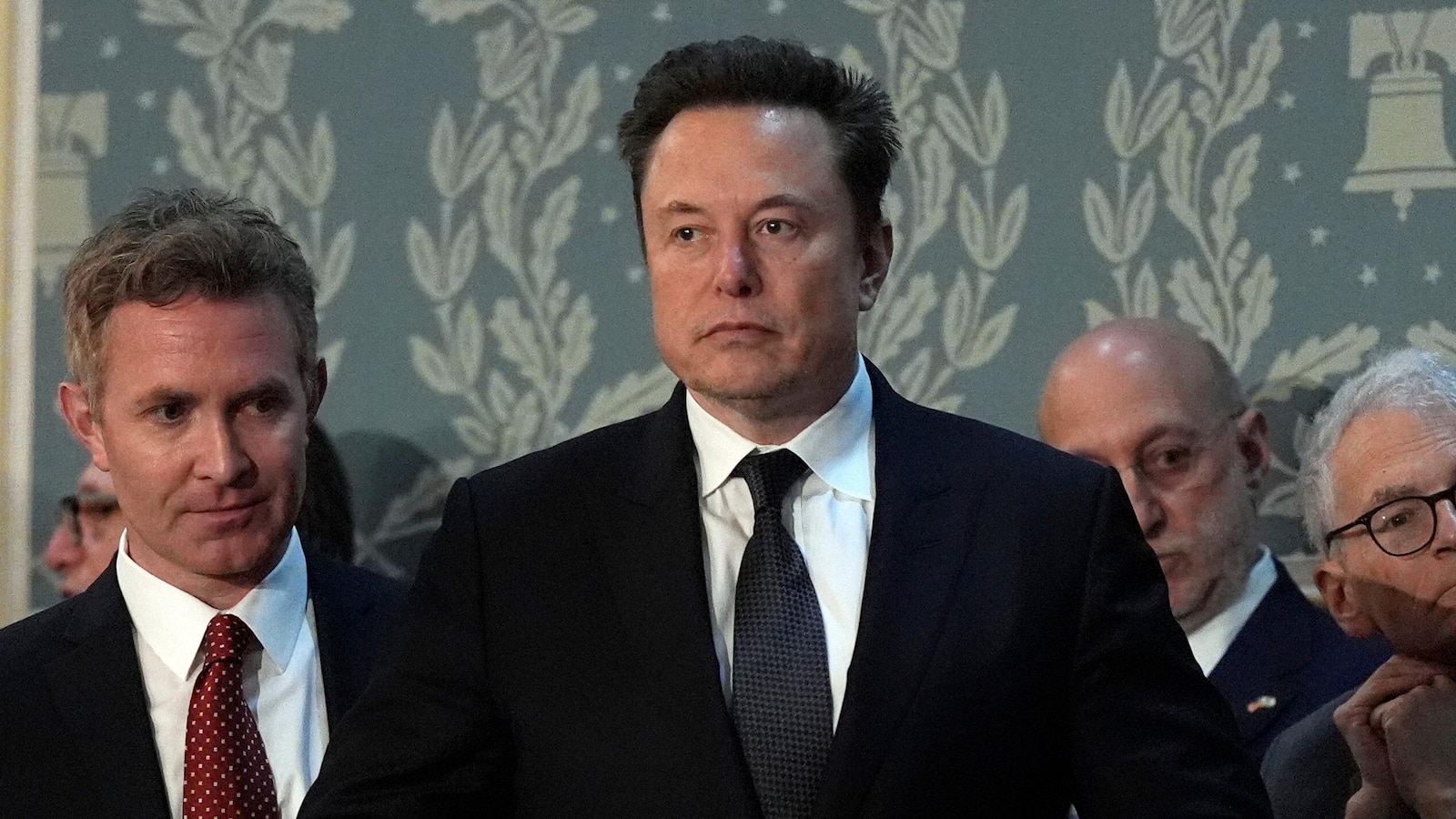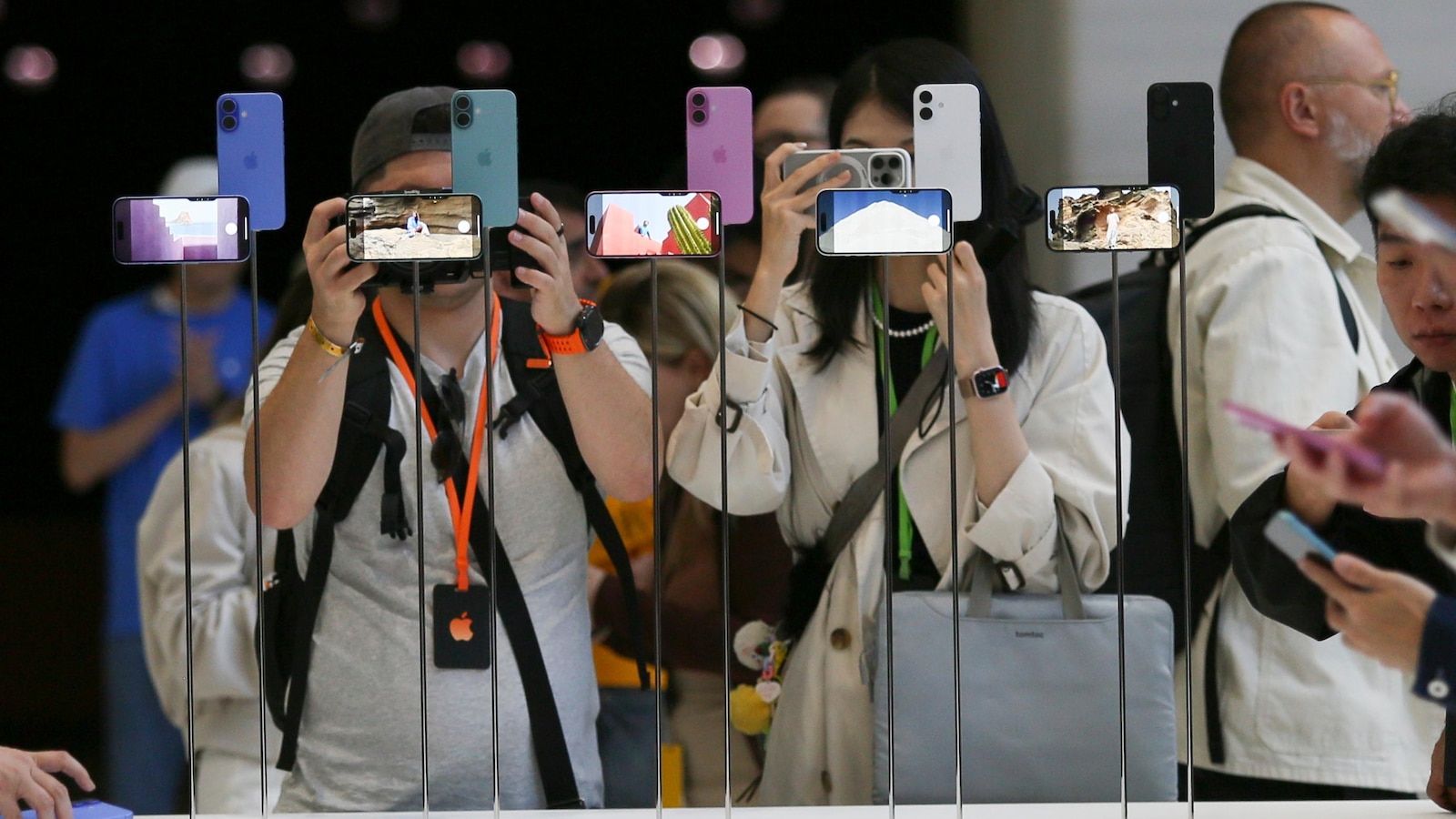
Apple’s annual World Wide Developers Conference on Monday is expected to herald the company’s move into generative artificial intelligence, marking its late arrival to a technological frontier that’s expected to be as revolutionary as the invention of the iPhone.
The widely anticipated display of AI to be embedded in the iPhone and other Apple products will be the marquee moment at an event that traditionally previews the next version of software that powers the company’s hardware lineup.
And Apple’s next generation of software is expected to be packed with an array of AI features likely to make its often-bumbling virtual assistant Siri smarter, and make photos, music, texting — and possibly even creating emojis on the fly — a more productive and entertaining experience.
True to its secretive nature, Apple hasn’t provided any advance details about Monday’s event being held at the company’s Cupertino, California, headquarters.
But CEO Tim Cook has dropped strong hints during the first few months of this that Apple is poised to reveal its grand plans to enter a space that has been fueling an industry boom during the past 18 months.
AI mania is the main reason that Nvidia, the dominant maker of the chips underlying the technology, has seen its market value rocket from about $300 billion at the end of 2022 to about $3 trillion. The meteoric ride allowed Nvidia to briefly surpass Apple last week as the second most valuable company in the U.S. Microsoft earlier this year also eclipsed the iPhone maker on the strength of its so-far successful push into AI.
But analysts have been have been getting increasingly worried that Apple may be falling too far behind in the rapidly changing AI space, a concern that has been compounded by an uncharacteristically extended slump in the company’s sales. Both Google and Samsung already have released smartphone models touting AI features as their main attractions.
That’s why analysts such as Dan Ives of Wedbush Securities view Monday’s conference as a potential springboard that catapults Apple into another robust phase of growth. Ives believes infusing more AI into the iPhone, iPad and Mac computer will translate into an additional $450 billon to $600 billion in market value for Apple.
Monday’s conference “represents the most important event for Apple in over a decade as the pressure to bring a generative AI stack of technology for developers and consumers is front and center,” Ives wrote in a research note.
Apple definitely could use the boost that AI may be able to provide, particularly for its 13-year-old assistant Siri, which Forrester Research Dipanjan Chatterjee now calls an “oddly unhelpful helper.”
Meanwhile, OpenAI’s ChatGPT is getting increasingly conversational — so much so that it recently sparked accusations of intentionally copying a piece of AI software voiced by Scarlett Johansson — and Google last month previewed an AI “agent” dubbed Astra that can seemingly see and remember things.
Besides using AI to spruce up Siri, Apple may also team up with OpenAI to bring some elements of ChatGPT to the iPhone, according to a wide range of unconfirmed reports leading up to Monday’s conference.
This will be the second straight year that Apple has created a stir at its developers conference by using it to usher in its entrance into a trendy form of technology that other companies already had been making inroads.
Last year, Apple provided an early look at its mixed-reality headset, the Vision Pro, which wasn’t released until early this year carrying a $3,500 price tag that has been a major impediment to gaining much traction. Nevertheless, Apple’s push into mixed reality, tweaked with a twist that it bills as “spatial computing,” has raised hopes that what is currently a niche technology will turn into a huge market.
Part of the optimism stems from Apple’s history of releasing technology later than others and then using sleek designs and services combined with slick marketing campaigns to overcome its tardy start to unleash new trends.
“Apple’s early reticence toward AI was entirely on brand,” Forrester’s Chatterjee wrote in a preview of the developers conference. “The company has always been famously obsessed with what its offerings did for its customers rather than how it did it.”
Bringing more AI into the iPhone, in particular, will likely raise privacy issues — a topic where Apple has gone to great lengths to assure its loyal customer base that it can be trusted not to peer too deeply into their personal lives.
One way Apple could reassure consumers that the iPhone won’t be used to spy on them is to leverage its own chip technology so most AI-powered features are handled on the device itself instead of remote data centers, often called “the cloud.” Going that route also would help protect Apple’s profit margins because AI technology through the cloud is far more expensive than when it is run solely on a device.
Apple, known for its innovative technology and sleek design, is now setting its sights on the rapidly growing field of artificial intelligence (AI). With companies like Google, Amazon, and Microsoft already established as leaders in the AI race, Apple is looking to make its mark and challenge these early frontrunners.
In recent years, AI has become increasingly integrated into our daily lives, from virtual assistants like Siri and Alexa to personalized recommendations on streaming platforms. As the demand for AI-powered products and services continues to rise, Apple recognizes the importance of investing in this technology to stay competitive in the market.
One of Apple’s key initiatives in the AI space is the development of its own AI chip. The company’s current devices, such as the iPhone and iPad, rely on third-party chips for AI processing. By creating its own chip, Apple aims to improve the performance and efficiency of its AI capabilities, giving it a competitive edge over other tech giants.
Additionally, Apple has been making strategic acquisitions in the AI space to bolster its expertise and talent pool. In 2019, the company acquired Xnor.ai, a startup specializing in low-power AI technology. This acquisition will likely help Apple enhance its AI capabilities across its product line, from smartphones to smart home devices.
Furthermore, Apple has been investing in research and development to advance its AI capabilities. The company has opened AI research labs in locations such as Seattle and Zurich, where experts are working on cutting-edge AI technologies. By investing in research, Apple is positioning itself as a leader in AI innovation and pushing the boundaries of what is possible with this technology.
While Apple may be playing catch-up to early leaders in the AI race, the company’s strong brand reputation and loyal customer base give it a solid foundation to build upon. With its focus on developing proprietary AI technology, strategic acquisitions, and investment in research and development, Apple is poised to challenge the current leaders in the AI space.
As Apple continues to make strides in the AI field, consumers can expect to see more intelligent and personalized experiences across its product lineup. Whether it’s through improved virtual assistants, smarter devices, or innovative applications, Apple’s foray into the AI race is sure to shake up the tech industry and drive further innovation in this exciting field.


